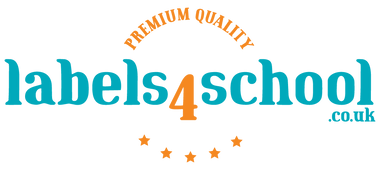
Benefits of chores and child development
In this blog we give you some ideas for age appropriate tasks and how to incorporate this into your daily routine. To help you get this routine started we would like to offer you this FREE downloadable chore chart!

Have you ever asked your child to clean up their room, only for them to say no? Frustrating right? But have you considered that maybe they just don't see a point as there is no reward or benefit, and they are happy with how the room is?
Well now is the time to start making sure your children know what you expect from them. Start by breaking each task down into clear steps. Be patient – repeat the steps of the chore with your child and show them how to do each step. Starting with small tasks and guide them through step-by-step, providing clear ‘rules’ to follow. Take it slow by starting with 5-10 minutes a day where you allow your child to practice a skill independently.

This is where using a chore chart comes in handy, they help keep track of chores in a fun way and you can set a reward at the end of the week for completed chores, which gives kids that motivational boost to get up and go.
Click here to download your Free Chore Chart
We have compiled a list of age-appropriate chores for your kids:
Ages 2-3It might seem young to start doing chores with toddlers but teaching them these simple tasks can help teach them responsibility and gain confidence in themselves and their abilities.
- Put toys away
- Put shoes away
- Put dirty clothes in the washing basket
- Place books on bookshelf
- Fetch nappies/wipes
- Help set the table
At this age, children love to mimic their parents and older siblings. They will love the opportunity to feel independent and capable. Praise them for a job well done. Help them learn to be responsible by teaching them the following skills:
- Gets dressed
- Brush teeth (with assistance)
- Make the bed (not perfect)
- Put away clean clothes
- Teach ‘inside voice’ – differentiate between loud and quiet times
- Wipe up spills
- Water the plants
- Feed pets (with assistance)
Helping your children to become contributing members of the household and one day to society will give them the feeling of self-reliance, independence, self-confidence and responsibility. When they get to school or day care these tasks will be familiar to them so they can confidently show the teacher and others that they are capable. This starts with small chores at home, such as:
- Help preparing dinner
- Setting or clearing the table (light objects)
- Help putting groceries away
- More independent play outside
- Wipe down bathroom/kitchen sinks and counters
- Sweep or rake
- Making their own luncesh (simple sandwich/noodles)
Your child will be in big school and now will start becoming even more independent. They need to learn that certain chores need to be done every day before they can have some free time. Time management is an important skill they will learn here:
- Helping put groceries away
- Loading or unloading the dishwasher
- Mop floors
- Dust the furniture
- Help bake cookies or scramble eggs
- Walk the dogs
- Do homework (guided by parent)
Older children need to learn to become self-reliant and confident in their own abilities, so start letting them do these tasks by themselves. They can’t depend on you for everything. Trusting them with certain tasks every will teach them to be responsible and self- sufficient. Teach them to:
- Make simple meals
- Take out the rubbish
- Wash clothes and move to the dryer
- Clean toilets, bath/shower, sinks
- Deep clean the kitchen
- Clean up after pets
When your children are in "big school", you can help build on their valuable life skills that they are already learning - such as independence, responsibility, confidence, time-management, and prioritisation. Now that they are older, you can let them:
- Guided Shopping trips for groceries (with a list)
- Make Full Meals
- Baking
- Wash windows
- Clean the car
- Iron clothes
- Supervise younger children
Fostering independence and self-reliance in your child helps them to feel more confident and sets them up for success as adults. Asking children to do chores is not mean or pushing them to grow up too fast. In fact, children love to help around the house- not only do they feel a sense of accomplishment but they also feel immense satisfaction that they are a contributing member of the household. Guiding your children to learn important life skills will help them become successful and responsible adults.
Download the Free Chore Chart here
Use a set of reward stickers to mark your chore chart here






